Every year, UW–Madison celebrates Native November to honor the ways in which Native communities have contributed to and helped shape American society and this campus community.
In honor of Native November, we asked several Native faculty and staff members to reflect on culture, history, contributions, and achievements within their communities and share their thoughts with us.
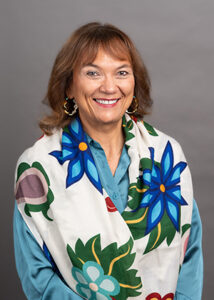
“I am an enrolled member of the Menominee Nation, and along with the Ho Chunk, both Tribes have their origin stories here in Wisconsin. That makes us Wisconsin’s original longitudinal researchers!
Native people have survived and thrived in this place since time before memory by honoring their relationships with the natural world and ensuring that there would be enough resources for future generations. Years of colonization sought to remove Indigenous knowledge, yet our cultural teachings can provide resilience and hope for pressing issues related to sovereignty, historical trauma, food, and climate.
We enjoy a good story, a good laugh, teaching, and learning. Spend time with us and get to know us all year, not just in Native November!”
Annie Jones, PhD
Organization Development and Tribal Nations Specialist
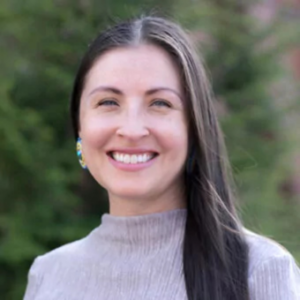
“It’s so important to learn about the land we all live and work on and whose land it was prior to colonization. Understanding the hard history of our tribal communities, such as boarding schools (and their lasting negative impact), forced removal, and termination of tribes, is often not taught in school curriculums. Learning that history and then seeing how many of our Native communities are thriving will hopefully help everyone understand just how resilient our people are.
There are many students, staff, and faculty on campus who identify as Native American/American Indian. It’s important to not judge or make assumptions about who we are or what we do. Attend on-campus events and maybe even go on a campus First Nations Landscape tour. More information can be found here: https://www.wisc.edu/visit/
Be an ally. Know it’s ok to ask questions, and don’t mock or make fun of Indigenous people. There are a lot of stereotypes out there from mainstream media and other sources, which are degrading and not accurate. That is why it’s so important to learn and be respectful of our tribal cultures.”
Melissa F. Metoxen
Assistant Director
Native American Center for Health Professions
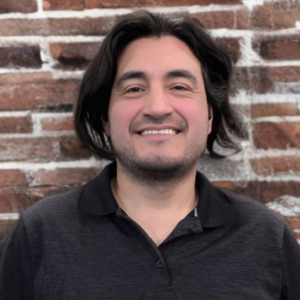
“As an Indigenous person from the Nahuatl tribes of El Salvador, I believe it is crucial to recognize the diversity of Native cultures across the Americas. Native history is not a single story but a tapestry of traditions, languages, and wisdom. A key aspect to reinforce is the relationship between Indigenous peoples and the land, shaping cultural practices and perspectives on stewardship and sustainability.
While Native November is valuable for raising awareness and celebration, it’s equally important for the UW–Madison community to honor all cultures year-round. Month-long observances can inspire ongoing dialogue and support, but they should also spark deeper engagement with the diverse histories and identities within our communities. Respect and honor extend beyond a single month and require a year-round commitment to learning, listening, and supporting Indigenous voices. For UW–Madison, this could mean integrating diverse perspectives into curricula, acknowledging the land’s Indigenous history, and continuing to foster inclusive spaces that celebrate everyone’s heritage.”
Kelvin Alfaro
Internal Consultant
Office of Strategic Consulting
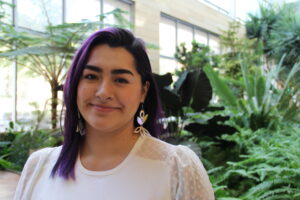
“Folks should learn about contemporary Indigenous issues that our community is facing today. Too often, Indigenous people are talked about in past tense, but we are still here and the issues we are facing are a direct result of colonization and forced assimilation.
As folks learn about contemporary issues, they should reflect on their positionality in these issues and make a plan on how they will uplift Indigenous voices and joy. Some examples of that could be engaging with Indigenous-run/focused accounts on social media platforms, attending campus events hosted by Indigenous student organizations or the Indigenous Student Center, supporting Indigenous-owned businesses, donating to causes, or participating in calls to action.”
Bobbi Skenandore
Native Nations UW Administrative Coordinator
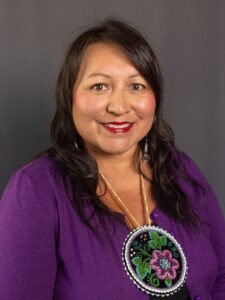
“November is an opportunity to reflect on our country’s history and honor its original people along with the sacrifices of our Indigenous ancestors.
What is now called Wisconsin has been inhabited by and cared for by Indigenous people for more than 10,000 years. This area has a rich history filled with Indigenous families that loved one another, communities that sustained each other, and a beautiful, vibrant culture.
When you give thanks this month, be thankful for Indigenous knowledge, Native perspectives, and traditional solutions that have been the origin of all progress.”
Carla Vigue
Director of Tribal Relations